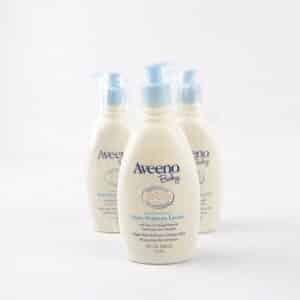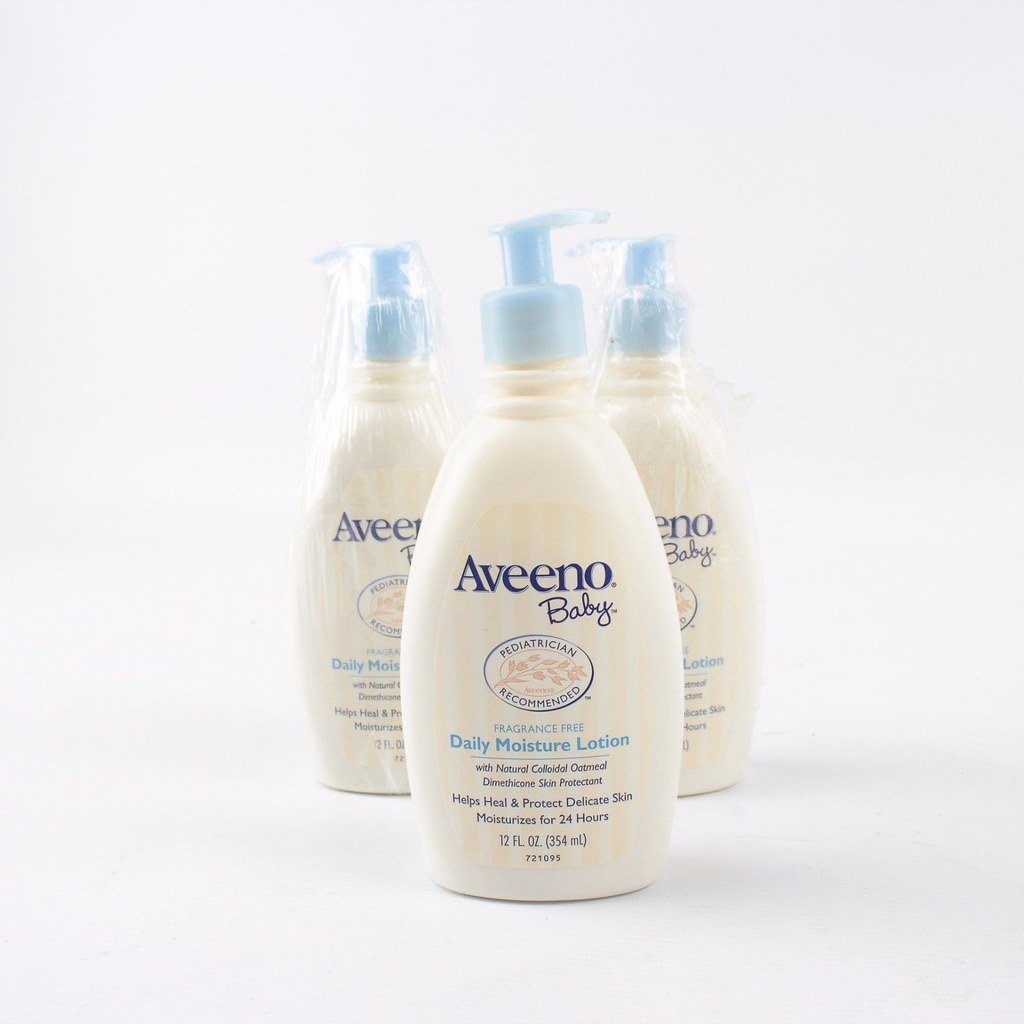Many parents wonder if it’s safe to put baby lotion on young infants and newborns. Interestingly, the right course of action is even unclear to many healthcare professionals. However, I’ve compiled the best research and recommendations from professionals on the topic. I hope this information clears up some of the confusion surrounding this issue!
Can You Put Lotion on a Newborn?
What does the research say about putting lotion on a newborn? In a study published by the National Center for Biotechnology Information, the researchers explain that emollients, or lotions, are helpful to premature infants and infants that have “compromised skin barrier function.” So when infants are premature, their skin might need the extra moisture provided by lotions. However, they also mention that due to a lack of research, it is unclear whether or not healthy, full-term infants also benefit from lotion.
Additionally, Web MD recommends that baby lotion be used sparingly on tiny newborns.
So based on this, it seems that premature infants may benefit from some lotion, but that full-term newborn will likely not need any. In either case, it’s probably best to consult your child’s physician before using lotion on your newborn.
When Can I Put Lotion on My Baby?
According to Dipesh Navsaria MD of Healthline, babies should not receive a bath at home until their umbilical cord area has healed. Because of this, we would recommend waiting at least until the umbilical cord area has healed as well to put lotion on your baby.
Also, Web MD, recommends that “in the early months, as your baby’s immune system develops, you’ll want to use the mildest cleansers and the smallest bit of lotion.”
So based on this information, parents should wait until after the umbilical cord area has healed, and once they do start putting lotion on their baby, they should only do a very small amount.
Do Babies Need Lotion?
Do newborns need lotion? Kaiser Permanente explains that a lot of newborns will have some dryness, but that it goes away on its own. They also say that most newborns will not need any lotion applied to their skin.
What about older babies? In the study mentioned previously (published by the National Center for Biotechnology Information), the researchers explain that infant skin changes during the first years of life, and as a result, requires a fitting skincare routine. They continue to explain that cleansers with mild surfactants help with the maintenance of “skin barrier integrity” and are not likely to be disruptive to the skin or cause any inflammation. They also add that long term benefits can also be expected if lotions are regularly used.
So full-term newborns probably don’t need lotion, but older infants likely would benefit from more mild lotions, especially lotions that have mild surfactants. So even if your doctor advises you to wait until after the newborn phase, older babies in their first year of life may benefit both in the short term and the long term from a skincare routine that includes the application of mild lotions.
Tips for Putting Lotion on Infants
Some healthcare professionals have given some great advice about how to safely apply lotion to infants. Kaiser Permanente recommends using lotions like Aquaphor or Eucerin because they don’t have perfumes or dyes. They also say that if you are worried about your baby’s skin drying out, then you might want to give your baby fewer baths or use less soap, as each of these things might lead to dry skin.
View in gallery
Web MD also offers some useful advice on how to select the best lotions for your baby. Here are some of their tips:
- Be aware that the term “hypoallergenic” does not mean that the product is more gentle on baby skin than other products, but that it is not as likely to cause an allergic reaction.
- Phthalates and parabens can be harmful to babies’ skin, so try to find products without these chemicals.
- Natural skin care products are generally safe for babies.
- Products with dyes, perfumes, and chemicals can be irritating to babies’ skin.
Where Can You Put Lotion on a Newborn?
Some healthcare professionals also have given some advice on where to and where not to put lotion on your newborn or infant. According to Women and Infants, “It is normal for the skin on your baby’s hands and feet to be very dry. Do not put lotion on the baby’s face. If you put lotion on the baby’s hands, cover them with a baby mitt or socks so the baby doesn’t get the lotion in his or her mouth.”
Similarly, according to the Mayo Clinic, “the majority of newborns do not need lotion after being bathed. If his or her skin is very dry, apply a small amount of unscented baby moisturizer to the dry areas. The massage might make your baby feel good. If dryness continues, you might be bathing your baby too often.””
Additionally, Kaiser Permanente explains that “some babies have skin that is very dry and splits, especially around the ankles and hands. You can put olive oil, Vaseline, or A‑D ointment on those areas.”
So to sum up, you should avoid putting lotion on a baby’s face, and if you do put lotion on their hands you should make sure they are covered so they don’t accidentally get lotion in their mouth. You can also put small amounts of lotion on dry areas. And, if there is dryness or cracking around the ankles or hands, these spots can benefit from other emollients besides lotion.
Conclusion
The answer to this question is still largely unclear, however, most healthcare professionals advise against putting lotion on newborns, especially if they are full term. Some research suggests that preterm infants would benefit from gentle lotions and that older infants would benefit from this as well. But, as always, its probably best to seek out your doctor’s advice before taking any particular action.







